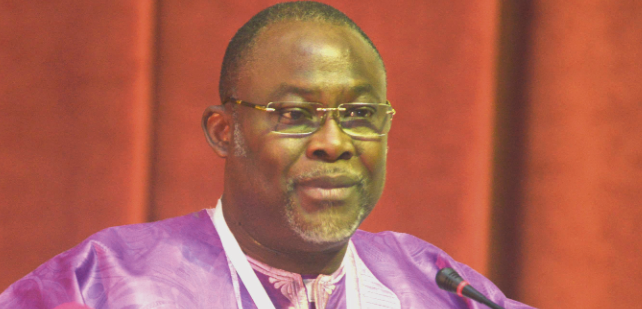
ECOWAS holds maiden industrial summit
The Economic Community of West African States (ECOWAS) has held its maiden industrial summit as part of efforts to accelerate the industrialisation of the sub-region.
Advertisement
The one-day summit, held on the theme: “Promoting investment to accelerate the industrialisation of the West African sub-region”, was organised by Ghana in collaboration with other ECOWAS member states.
It brought together representatives of governments and regional institutions, ECOWAS ministers of industry, ECOWAS investment promotion agencies and regional business associations, as well as heads of financial Institutions, the international community and industry practitioners and other stakeholders.
The discussions were centred on four key areas of the West African Common Industrial Policy; namely, reducing post-harvest losses and creating jobs in the agro-industry, the prospects and challenges of the ECOWAS pharmaceutical industry, the way forward in developing the automotive industry in West Africa and the export potential of the textiles and garments industry.
President Mahama’s Address
In an address read on his behalf to open the summit, President John Dramani Mahama stated that accelerating the industrialisation of ECOWAS was appropriately linked to Ghana’s current transformation agenda, which was aimed at improving livelihoods.
“Indeed, an accelerated and profound economic structural transformation, through relocating economic activities from less productive to more productive sectors for sustainable and inclusive development, is a sure pathway to stem sub-regional poverty,” he said.
President Mahama said for ECOWAS to achieve real transformation, policy shift and strategic changes in programme implementation patterns would be required across the sub-region.
He recommended a focused approach to supporting key areas such as the provision of reliable and cheaper electricity to impel industrialisation, curbing hunger and malnutrition, improving rural life, ensuring food security and the expansion of basic social services.
He added that in striving for the industrialisation of Africa, there was the need to change the financing mechanisms that impeded the sub-region’s industrial development and suggested converting some of the financial institutions from short-term lenders for commercial transactions to long-term financiers of industrial projects, especially those that added value to the natural resources of ECOWAS.
“Our industrialisation effort has to keep a regional market focus through increased intra-African trade before we think of global supply chain nexus,” he said.
The President said driving the industrialisation effort would require placing emphasis on agro-industrial products and value–addition to mineral and natural resources export.
“The burgeoning question now is how West Africa should pursue its industrialisation agenda. Many pathways exist, but as latecomers we can latch on to existing best practices to close the lacuna while defining and clearly designing our own pathway based on our own realities,” he said.
Remove intra-trade limitations
The Chairperson for the summit, Mrs Kate Quartey-Papafio, said it was time for ECOWAS to remove all intra-trade limitations to help accelerate the ECOWAS industrialisation agenda.
That, she said, could be done through effective collaboration of member states.
Mrs Quartey-Papafio, who is also the Chief Executive Officer of Reroy Group, called on the industrial sector of the sub-region and of the respective countries to use scientific research as a tool to familiarise the local sector with the international market to be able to effectively explore and make meaningful contributions to the international market.
In his welcome address, Ghana’s Minister of Trade and Industry, Dr Ekwow Spio-Garbrah, said there was the need for African governments to effectively promote the transformation of their economies with strategic tailor-made industrial policies that delivered inclusive and sustainable industrial development.
He said the new industrial policy revolution demanded that countries responded to the specific and dynamic needs expressed by their manufacturing sectors with appropriately designed and targeted policies.
“It is in view of this that Ghana is hosting the first ECOWAS Industrial Summit to create a platform for dialogue and networking against the backdrop of the West African Common Industrial Policy,” Dr Spio-Garbrah said.
He expressed optimism that the summit would provide an environment for deep thought and a solution-based discourse, as it had brought together all the key players in industrialisation.



